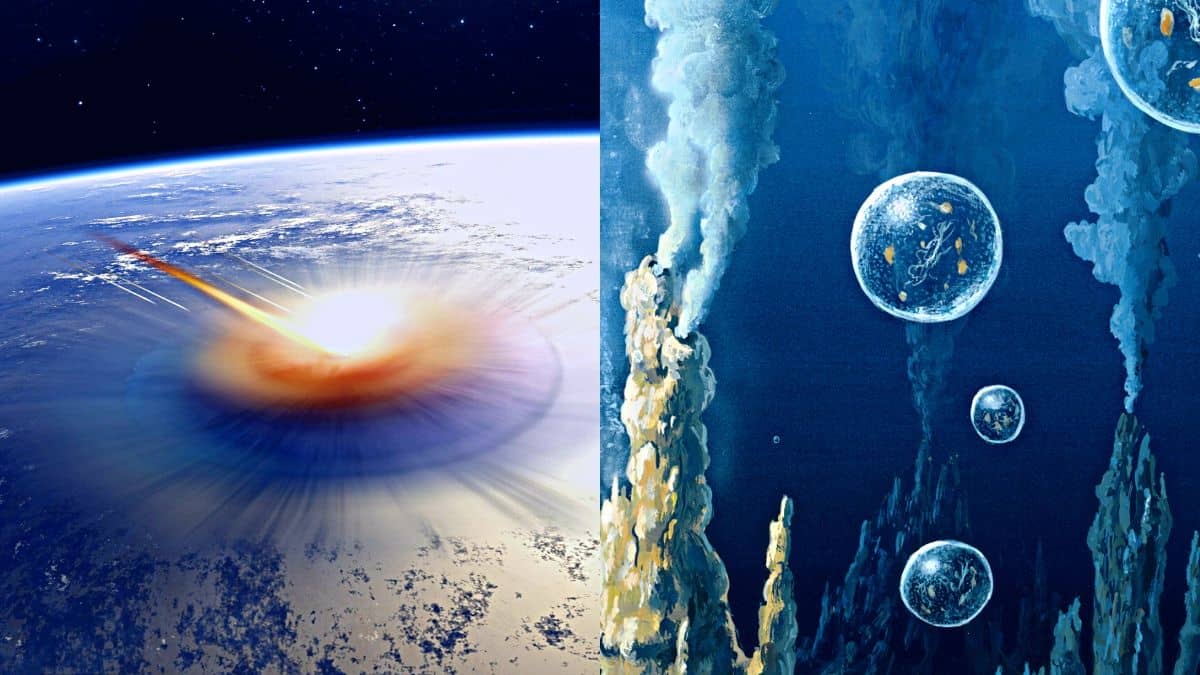Science News | Can microbes survive on asteroid?

Life in space is a mystery that hasn’t been solved by scientists yet. Are we all alone in this universe? Are humans really Earthlings or landed on Earth from outer space on an asteroid or comet? These are the primary questions scientists are trying to deduce for a long time. According to Harvard University researchers, humans might have immigrated to Earth from deep space via panspermia which is an asteroid carrying microbes from one world slamming into another fertile planet by transferring the inter terrestrial genes. Scientists believe that panspermia could work effectively within the solar system. They said that more than 4 billion years ago possible life was generated on Mars as a result of panspermia.
However, scientists argued that panspermia has a limited reach also fragments of life existing on an asteroid or comet can be killed by direct radiation when exposed to space. Although Harvard scientists say that asteroids or comets like Oumuamua, the 700-foot-long object, can possibly carry seeds of life across the galaxy via bio-packages. In a double-star system especially seen in the Milky Way, the gravitational field is changing constantly. The asteroid or comets can be seen to be slingshot into space due to an intense gravitational field. Sometimes double star systems attract large objects towards them. These are the ways an ejected asteroid or comet carrying bio-packages can enter another system to infect life. During the passage of time, the bacteria usually remains dormant until it finds a favorable environment.
However, not all scientists are in favor of this panspermia theory. A senior research scientist at NASA’s Ames Research Center said, “f the journey took millions of years, then that life would die and it doesn’t matter if it is Earth life or non-Earth life…Why? Because it would be destroyed by cosmic radiation. And even if it could survive that, the radiation given off by the mineral in the rock itself would destroy it.”
A team of scientists at the Tokyo University of Pharmacy and Life Sciences has shown that the bacteria named Deinococcus radiodurans can survive at least three years in space. The findings were published in Frontiers in Microbiology and the research was led by Akihiko Yamagishi a microbiologist at the said university. The study took place in a simulated environment similar to the International Space Station where Yamagishi and his team experimented on D. radiodurans bacteria. They created the ISS-like environment by dropping pressure like in a vacuum, increasing the temperature to 140 degrees Fahrenheit and projected high levels of radiation for 90 minutes. Yet they found that D. radiodurans cells grew rapidly in that simulated environment. Scientists said, “We showed [the bacteria] will survive by doing these experiments on the ground, and they accepted us and believed us.”
Later the team led an experiment in the actual space. They sent experimental sets via SpaceX rocket in April 2015 and conducted the experiment using a Kibo’s robotic arm situated outside of the ISS. Three panels of bacteria went up into space with the help of a SpaceX rocket, one had one year of exposure, another had exposure of two years and another had for three years. Each year Kibo’s robotic arm brought back the test samples and was studied by the astronauts. They observed D. radiodurans bacteria growth showed extraordinary survival skills even though it had three years of exposure. However, the outer layer of the cells died but in high mass cells, the innermost layer survived for three years.
In regards to the experiment, Yamagishi said, “Those studies propose that microbe spores could survive inside rock—that’s lithopanspermia,” which is a variation theory of panspermia. Yamagishi expects to perform more similar studies even further away from Earth with the help of NASA’s project Lunar Gateway to develop his observation more effectively.


